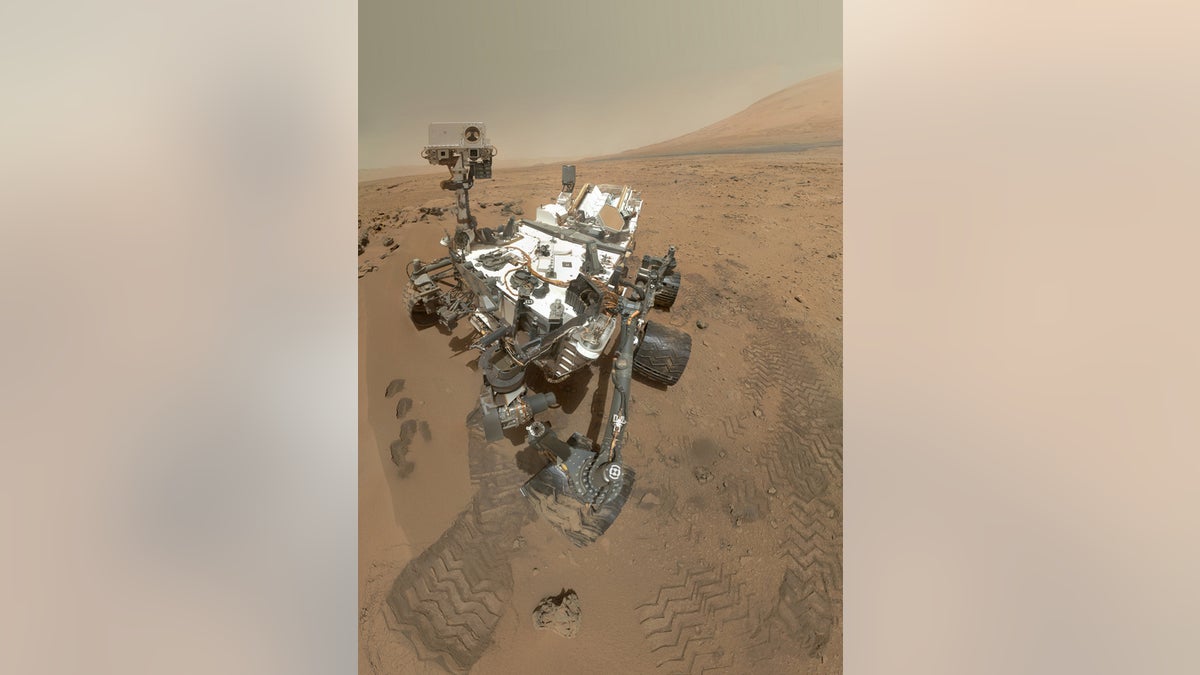
NASA's Mars rover Curiosity used its Mars Hand Lens Imager (MAHLI) to snap a set of 55 high-resolution images on Oct. 31, 2012. Researchers stitched the pictures together to create this full-color self-portrait. (NASA/JPL-Caltech/Malin Space Science Systems)
NASA will discuss the latest Red Planet activities of its Mars rover Curiosity on Monday, Dec. 3, but space geeks shouldn't get their hopes up for a bombshell announcement.
Despite rampant rumors to the contrary, Monday's press conference — held at 12:00 p.m. EST (1700 GMT) during the fall meeting of the American Geophysical Union in San Francisco — won't present any earth-shaking results that force humanity to rethink its place in the universe, NASA officials said.
"Rumors and speculation that there are major new findings from the mission at this early stage are incorrect," officials at NASA's Jet Propulsion Laboratory (JPL) in Pasadena, Calif., which manages Curiosity's mission, wrote in an update Thursday, Nov. 29. "The news conference will be an update about first use of the rover's full array of analytical instruments to investigate a drift of sandy soil."
[pullquote]
of a big Curiosity discovery began swirling two weeks ago, after an NPR story quoted mission chief scientist John Grotzinger as saying that the rover's Sample Analysis at Mars instrument, or SAM, had recently gathered data "for the history books." [Latest Photos from Curiosity Rover]
- Too soon to declare ‘life’ on Mars, NASA says
- NASA spacecraft confirms ice at shadowy north pole of Mercury, closest planet to sun
- Screams sent into space to test vacuum theory
- 2012 Mayan apocalypse rumors have dark side, NASA warns
- Astronaut Scott Kelly will attempt longest spaceflight ever by an American
Because SAM can identify organic compounds — the carbon-containing building blocks of life as we know it — many people speculated that the car-size robot had discovered complex organics in a Martian soil sample.
But that's not the case, JPL officials say.
"At this point in the mission, the instruments on the rover have not detected any definitive evidence of Martian organics," they wrote in Thursday's update.
NASA's attempts to rein in such rumors and set reasonable expectations for Monday's press conference began with some thoughts from Curiosity itself on Nov. 21 (via the rover's JPL-run Twitter account, @MarsCuriosity).
"What did I discover on Mars? That rumors spread fast online. My team considers this whole mission 'one for the history books,'" Curiosity wrote in a Twitter post that day.
The $2.5 billion Curiosity rover landed Aug. 5 inside the Red Planet's huge Gale Crater, kicking off a two-year prime mission to determine if Mars has ever been able to support microbial life.
The six-wheeled robot is the largest and most capable explorer ever sent to the surface of another world, NASA officials say. Curiosity has already discovered an ancient streambed where water likely flowed for thousands of years long ago, and it may well make a truly monumental discovery about the history and evolution of Mars before its roving days are done.
Just don't expect such an announcement on Monday.








































